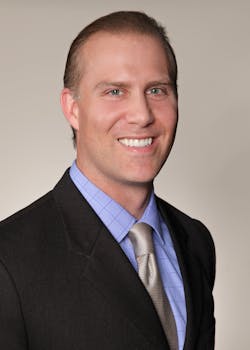
COVID-19 continues to bring terrible suffering and loss; however, as vaccines are produced and distributed, the virus may soon be under control. Despite broad support for the vaccines in the medical community, many individuals have concerns about being vaccinated. Some objections may be sincere and credible, others are not.
The security industry is not exempt from these challenges; in fact, because security providers often need access to the facilities of their customers, COVID presents even greater challenges to security professionals.
Here are some common legal questions we have heard from integrators:
Can vaccinations be mandated by states or municipalities as a matter of law?
Yes. In Jacobson v. Commonwealth of Massachusetts, 197 U.S. 11 (1905), the Supreme Court of the United States upheld Massachusetts’ decision to mandate the vaccination of all citizens in response to a smallpox epidemic. In the years since, several courts – state and federal – have upheld mandatory influenza vaccine programs, even when the employee objected to the vaccination. Given the severity of COVID-19, mandatory vaccination programs imposed by state or local governments is likely to be upheld.
Can a customer mandate vaccinations for all personnel who seek to enter the customer’s facility?
Again, generally yes, but subject to any governing contract provisions. The customer has a duty to its employees and invitees to maintain a safe facility – and that may mean a security integrator’s employees may not be permitted to enter facilities owned/operated by the customer without proof of vaccination.
If the customer operates an empty warehouse and is precluding your employees from entering the facility due to COVID-19, then you likely have a good argument that they are obstructing your ability to fulfill your obligations under the contract. In such a case, you may be entitled to compel access, escape your performance obligations, and/or get expectancy damages for the work you would have done had access not been denied. However, if the customer is a nursing home operator or hospital, then the demand that your employees be vaccinated before entering the facility is very likely enforceable. In such case, you may have to mandate vaccinations for impacted employees – or risk losing the job.
Can I mandate vaccinations for my employees – particularly those who need to enter a customer’s facility?
Again, yes…subject to exceptions. On Dec. 16, 2020, the Equal Employment Opportunity Commission (EEOC) issued updated guidance specific to COVID-19 mandatory vaccination programs. The updated guidance is consistent with the EEOC’s past advice – that employers can mandate vaccinations, even where, as is the case with COVID-19, the vaccinations are approved under an “emergency use authorization” rather than full-fledged approval.
If the employer can show that, based on the unique circumstances of the work environment, a failure to be vaccinated would pose a “direct threat” to the health or safety of other co-workers or third parties with whom they interact, it is likely that mandatory vaccination programs will be upheld.
Potential Exceptions
As with prior vaccination mandates (for flu, for example), employers must consider exceptions. The two most notable exceptions are religious accommodation requests under Title VII of the Civil Rights Act of 1964 (Title VII) and medical accommodation requests under the Americans with Disabilities Act (ADA).
Religious accommodations: Under Title VII, a “sincerely held religious belief” is a prerequisite to establishing an entitlement to a religious accommodation which justifies declining a mandatory vaccination. Personal anti-vaccination positions generally will not support the legal requirement of establishing a sincerely held religious belief; thus, for example, if an employee is simply an “anti-vaxxer” without a sincerely-held religious belief, they will likely have to take the vaccine as a condition of employment.
Even if an employee can establish a sincerely held religious belief, the employer may deny an accommodation request if it poses an “undue hardship” to the employer. The undue hardship analysis includes consideration of harm to the employer, its employees, and third parties – such as a customer. Losing a customer because an employee cannot enter a facility to provide security services may constitute an undue hardship.
Medical accommodations: Similar to Title VII for religious beliefs, an employee requesting an accommodation under the ADA must establish that they have a covered disability. The employer cannot exclude the employee from the workplace – or take any other action – unless the interactive process of finding a reasonable accommodation that eliminates the direct threat fails. The law is unsettled as to whether sensitivity to vaccinations constitutes a covered disability. Some federal courts have said yes; others have said no.
Assuming an employee requesting an accommodation is covered by the ADA, the undue hardship standard under the ADA is likely harder to demonstrate than the standard under Title VII. However, given the variety of vaccine manufacturers, employers may be able to offer alternative vaccines that do not contain an ingredient that could trigger an employee’s medical condition. In such case, the medical accommodation may not be necessary.
Get Advice
Although COVID-19 is not new, the legal issues that it presents for employers and customers in the security industry are still evolving. If your customer mandates vaccinations for your workers and refuses to give them access to its facilities, that likely means you must mandate vaccinations. Given the impact that this could have on your business and the legal implications it presents, your company must consult with capable legal counsel prior to implementing any mandatory or incentive-based vaccination programs.
Timothy J. Pastore, Esq., is a Partner in the New York office of Montgomery McCracken Walker & Rhoads LLP (www.mmwr.com), where he is Vice-Chair of the Litigation Department. Before entering private practice, Mr. Pastore was an officer and Judge Advocate General (JAG) in the U.S. Air Force and a Special Assistant U.S. Attorney with the U.S. Department of Justice. Reach him at (212) 551-7707 or by e-mail at [email protected].

Timothy J. Pastore, Esq.
Timothy J. Pastore Esq., is a Partner in the New York office of Montgomery McCracken Walker & Rhoads LLP (www.mmwr.com), where he is Vice-Chair of the Litigation Department. Before entering private practice, he was an officer and Judge Advocate General (JAG) in the U.S. Air Force and Attorney with the DOJ. [email protected] • (212) 551-7707
Meet Timothy J. Pastore
Timothy J. Pastore, Esq., is the newest columnist to join the Security Business magazine family. He is a Partner in the New York office of Montgomery McCracken Walker & Rhoads LLP (www.mmwr.com), where he is Vice-Chair of the Litigation Department.
Before entering private practice, Mr. Pastore was an officer and Judge Advocate General (JAG) in the U.S. Air Force and a Special Assistant U.S. Attorney with the U.S. Department of Justice. As a JAG, in particular, Mr. Pastore was legal counsel to the Air Force Security Forces and Air Force Office of Special Investigations.
Mr. Pastore has represented some of the largest companies in the security industry, including Protection One, Comcast, Charter, Cox, Altice, Mediacom, IASG, CMS and others. He regularly provides counsel on risk management, contracting, operations, licensing, sales practices, etc. Mr. Pastore also has served as lead counsel in courts throughout the country in dozens of litigation matters involving the security industry.
Among other examples, Mr. Pastore led the successful defense at trial of cable giant Comcast in a home invasion case in Seattle, Washington. The case received significant press attention and was heralded by CVN as a top-ten defense verdict.
Mr. Pastore is a graduate of Bucknell University and Boston College Law School.
Reach him at (212) 551-7707 or by e-mail at [email protected].

